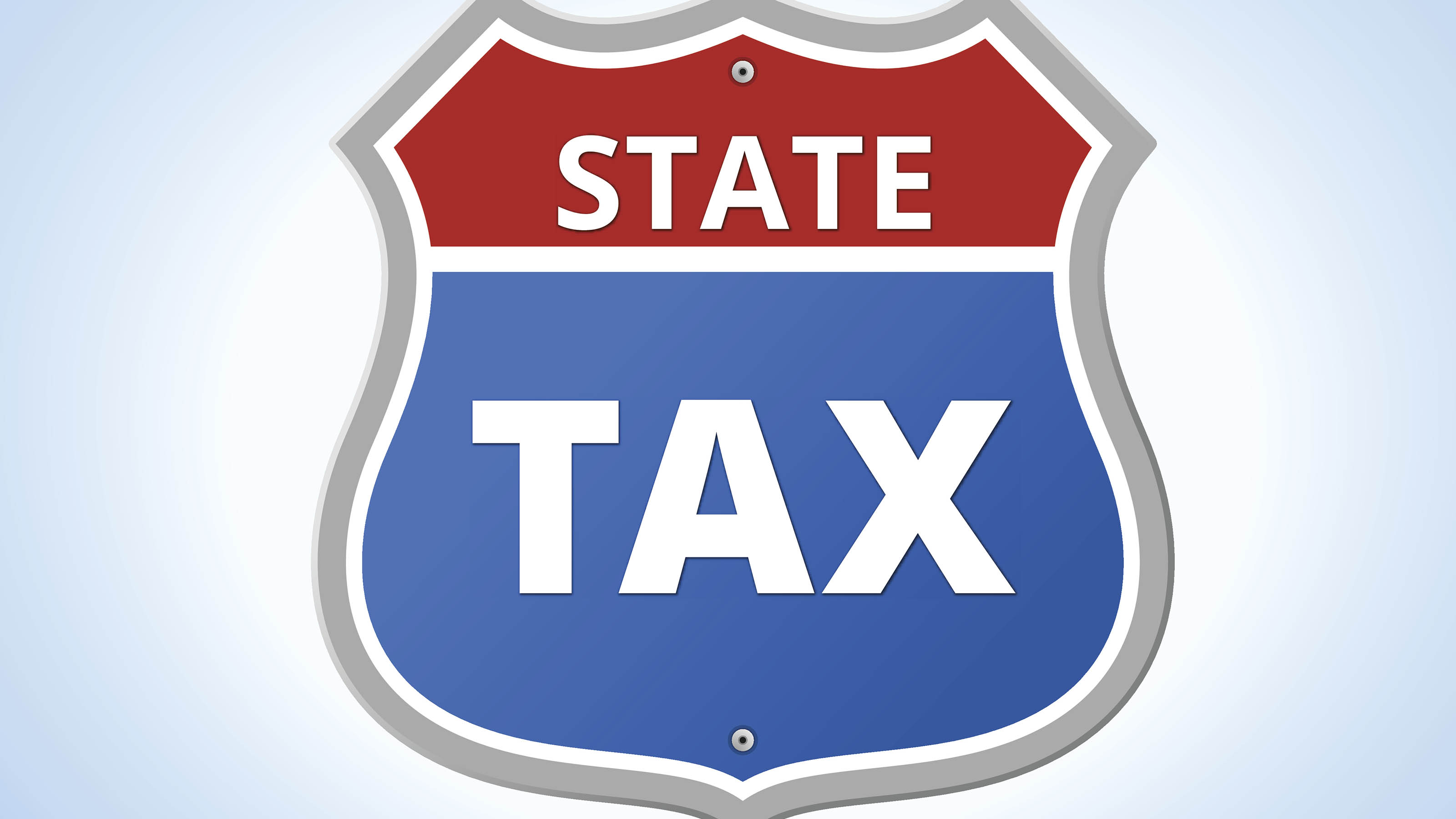Living and Working in Different States Can Be a Tax Headache
Living in one state and working in another can trigger several tax issues. Here are several key points to consider if you find yourself in this situation.


Profit and prosper with the best of Kiplinger's advice on investing, taxes, retirement, personal finance and much more. Delivered daily. Enter your email in the box and click Sign Me Up.
You are now subscribed
Your newsletter sign-up was successful
Want to add more newsletters?

Delivered daily
Kiplinger Today
Profit and prosper with the best of Kiplinger's advice on investing, taxes, retirement, personal finance and much more delivered daily. Smart money moves start here.

Sent five days a week
Kiplinger A Step Ahead
Get practical help to make better financial decisions in your everyday life, from spending to savings on top deals.

Delivered daily
Kiplinger Closing Bell
Get today's biggest financial and investing headlines delivered to your inbox every day the U.S. stock market is open.

Sent twice a week
Kiplinger Adviser Intel
Financial pros across the country share best practices and fresh tactics to preserve and grow your wealth.

Delivered weekly
Kiplinger Tax Tips
Trim your federal and state tax bills with practical tax-planning and tax-cutting strategies.

Sent twice a week
Kiplinger Retirement Tips
Your twice-a-week guide to planning and enjoying a financially secure and richly rewarding retirement

Sent bimonthly.
Kiplinger Adviser Angle
Insights for advisers, wealth managers and other financial professionals.

Sent twice a week
Kiplinger Investing Weekly
Your twice-a-week roundup of promising stocks, funds, companies and industries you should consider, ones you should avoid, and why.

Sent weekly for six weeks
Kiplinger Invest for Retirement
Your step-by-step six-part series on how to invest for retirement, from devising a successful strategy to exactly which investments to choose.
Lately, more people are getting jobs in a different state than where they live. However, living in one state and working in another can raise potentially complex tax issues.
For instance, if you live in one state and work in another, which state income tax return should you file?
Do you need to pay taxes for two states? Let's try to answer some of those questions.
From just $107.88 $24.99 for Kiplinger Personal Finance
Become a smarter, better informed investor. Subscribe from just $107.88 $24.99, plus get up to 4 Special Issues

Sign up for Kiplinger’s Free Newsletters
Profit and prosper with the best of expert advice on investing, taxes, retirement, personal finance and more - straight to your e-mail.
Profit and prosper with the best of expert advice - straight to your e-mail.
Where to file taxes if you live and work in different states
The question of where you're deemed to be a "resident" is important in determining which state will tax your income or how your employer will withhold taxes from your paycheck.
- For residents of a state, all income from sources inside and outside that state can be taxed by the state.
- When it comes to nonresidents, however, states have less power to tax.
Generally, a state can tax nonresidents only on income sourced to that state (for example, wages earned for work performed there).
However, what counts as "sourced" varies across states and can include special rules (such as day counts, statutory residency or telework-related sourcing).
What makes someone a resident of a state? You're generally deemed to be a resident of the state in which your primary home is located, assuming that you have spent more than half the year in that state.
There are some exceptions to that general residency rule.
For example, if someone has two houses in two different states, those states can look at other factors to determine the state of residence. Those factors might include the following.
- Where you vote
- Where you have a driver's license
- Where your personal and professional connections are found
Additionally, some states also have a "183-day rule."
The 183-day rule basically says if you are in the state for more than 183 days, you could be deemed a "statutory resident." (That would make you liable for taxes as a resident in that state.)
'Convenience of the employer' test
A handful of states apply a "convenience of the employer" test.
That test can result in your wages being taxed by the state where your employer is located instead of by the state where you live, even if you never set foot in the state where the employer is based.
This often affects people who telecommute for a company located in a different state, a trend that increased since remote work became more prevalent due to the pandemic.
- Under the "convenience of the employer" test, if an employer requires an employee to work in another state (for the employer's convenience), then taxes and withholding are based on the location where the work is performed.
- If, however, the employee chooses to work in another area (for the employee's convenience), then taxes and withholding are based on where the employer is located.
Do I have to file taxes in two states?

Generally, if you're a resident of the state in which you work, you'll file one state tax return at the end of the year.
What happens if you aren't a resident of the state in which you work? This can mean filing multiple state tax returns and possibly dealing with double taxation issues (which we will discuss below).
If this is your situation, the tax return for the state where you work will be a nonresident return. In that state tax return, you'll list only the income earned and taxes paid in that state. The other state tax return will be a resident return for the state where you reside.
One exception is if you live or work in a state that doesn't have state income tax.
For example, as of 2025, nine states don't have a personal income tax: Alaska, Florida, Nevada, New Hampshire, South Dakota, Tennessee, Texas, Washington, and Wyoming. If you live or work in one of those states, you won't need to file a state income tax return for that state.
However, if you must file returns in two states, most offer a credit or other relief to mitigate double taxation, but the rules and amount vary by state. The credit might not always fully offset taxes paid to the other state.
Always check the specific state rules or consult a tax adviser for accurate information.
Reciprocity agreements: Living and working in different states
Another exception to the rules requiring people to file a tax return for the state where they work involves a reciprocity agreement.
- These agreements, which are made between states, allow residents to work out of state, yet only file a state tax return for the state in which they reside.
- Also, under a reciprocity agreement, you'll only be subject to income tax withholding for the state in which you reside.
Note: The protections of a reciprocity agreement are not automatic. To properly take advantage of the agreement, you must tell your employer to withhold taxes based on your state of residence, rather than the state where you work.
If you don't do this, you'll continue to be taxed by both states and be required to file two state tax returns.
Be careful if you're moving while involved in a reciprocity agreement.
If you're permanently moving to a state in which there is no reciprocity agreement with the state where you work, you'll lose the benefits of the agreement. In that situation, you'd need to ask your employer to withhold income tax in the state where you work and the state where you reside.
Currently, 16 states and the District of Columbia have state tax reciprocity agreements. Check with the state tax agency where you live to find out if you're in one of them.
Do you pay more taxes if you live in one state and work in another?
If you're required to file multiple state tax returns because you live in one state and work in another, does that mean you'll pay taxes two separate times on the same income? The answer is no.
- After you fill out a state tax return for the state where you work, you'll file a second tax return for the state where you reside.
- On that return, you'll report how much your tax liability was on the first state tax return.
Most states offer a way to reduce or avoid double taxation — typically, a credit for taxes paid to another state — but the amount and method (credit vs deduction) vary by state.
In some cases, the credit might not fully offset what you paid to the other state. Check the rules where you live and work, or consult a tax professional.
For those who pay estimated taxes, you'll need to make estimated tax payments to each state based on your expected income, deductions and credits. Therefore, it's essential to consult with a tax professional when completing estimated tax forms.
Taxes if you moved to different state

What if you live and work in one state for part of the year, then pack your bags and move to a different state to take another job during the same tax year?
In that situation, you're technically a resident of two states during the year, which means that you'll need to file two separate state tax returns for the year.
Depending on the state, you might be able to pay taxes as a part-year resident.
- Most states allow a person to be a part-time resident for tax purposes if they move into the state during the year with the intention of becoming a resident or leave the state with the intention of residing elsewhere.
- By doing this, you can divide your income between the two states and not pay tax on the same income twice.
Again, this will heavily depend on whether the state in question has a part-year residency status. Check with the state's tax agency to learn these rules.
What if my spouse has a job in a different state?
Assuming both states at issue have a state income tax and there's a reciprocity agreement between them, both you and your spouse will need to file a state tax return for the state where you reside.
If your spouse works in another state that doesn't have a reciprocity agreement with the state where you live, they'll need to file a separate return as a nonresident in the state where they are employed.
Bottom line: 2025 state taxes
Whether you're moving or living and working in different states, state tax rules can change frequently.
Be sure to check the specific state tax agency webpages (or with your employer's payroll department) and a trusted tax professional before making tax withholding and filing choices.
Read More
- States With Low and No Capital Gains Tax
- Nine States Without Income Tax in 2025
- Are No-Income-Tax States Better to Live In?
Profit and prosper with the best of Kiplinger's advice on investing, taxes, retirement, personal finance and much more. Delivered daily. Enter your email in the box and click Sign Me Up.
William formerly worked as a Tax Editor at Kiplinger beginning in 2021. Before that, William worked in the tax world for over 15 years. He spent time working at the IRS, the U.S. Tax Court, and several private law firms where he dealt with both individual and corporate clients. He has a B.A. in Journalism from the University of Georgia, a J.D. from the Loyola University College of Law, and an LL.M. in Taxation from the Northwestern School of Law.
-
 Quiz: Do You Know How to Avoid the "Medigap Trap?"
Quiz: Do You Know How to Avoid the "Medigap Trap?"Quiz Test your basic knowledge of the "Medigap Trap" in our quick quiz.
-
 5 Top Tax-Efficient Mutual Funds for Smarter Investing
5 Top Tax-Efficient Mutual Funds for Smarter InvestingMutual funds are many things, but "tax-friendly" usually isn't one of them. These are the exceptions.
-
 AI Sparks Existential Crisis for Software Stocks
AI Sparks Existential Crisis for Software StocksThe Kiplinger Letter Fears that SaaS subscription software could be rendered obsolete by artificial intelligence make investors jittery.
-
 How to Open Your Kid's $1,000 Trump Account
How to Open Your Kid's $1,000 Trump AccountTax Breaks Filing income taxes in 2026? You won't want to miss Form 4547 to claim a $1,000 Trump Account for your child.
-
 In Arkansas and Illinois, Groceries Just Got Cheaper, But Not By Much
In Arkansas and Illinois, Groceries Just Got Cheaper, But Not By MuchFood Prices Arkansas and Illinois are the most recent states to repeal sales tax on groceries. Will it really help shoppers with their food bills?
-
 7 Bad Tax Habits to Kick Right Now
7 Bad Tax Habits to Kick Right NowTax Tips Ditch these seven common habits to sidestep IRS red flags for a smoother, faster 2026 income tax filing.
-
 New Plan Could End Surprise Taxes on Social Security 'Back Pay'
New Plan Could End Surprise Taxes on Social Security 'Back Pay'Social Security Taxes on Social Security benefits are stirring debate again, as recent changes could affect how some retirees file their returns this tax season.
-
 Living in One State, Working in Another: How to Avoid a Tax Season Headache
Living in One State, Working in Another: How to Avoid a Tax Season HeadacheState Tax Living and working in two states can take a heavy toll on your paycheck and give you a headache come tax time. Here's what to know.
-
 10 Cheapest Places to Live in Colorado
10 Cheapest Places to Live in ColoradoProperty Tax Looking for a cozy cabin near the slopes? These Colorado counties combine reasonable house prices with the state's lowest property tax bills.
-
 New Gambling Tax Rule Impacts Super Bowl 2026 Bets
New Gambling Tax Rule Impacts Super Bowl 2026 BetsTaxable Income When Super Bowl LX hype fades, some fans may be surprised to learn that sports betting tax rules have shifted.
-
 Should You Do Your Own Taxes This Year or Hire a Pro?
Should You Do Your Own Taxes This Year or Hire a Pro?Taxes Doing your own taxes isn’t easy, and hiring a tax pro isn’t cheap. Here’s a guide to help you figure out whether to tackle the job on your own or hire a professional.
